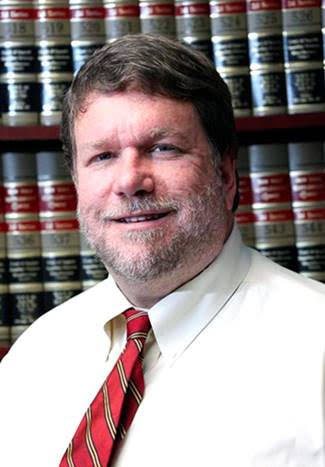Inside LI webinar focuses on estate planning
The coronavirus pandemic has, like never before, demonstrated to families that they must prepare now, not later, for any eventuality. Herald Inside LI recently held a webinar, “2021 Estate and Medicaid Planning,” to provide guidance to Long Islanders on how to do just that.
The event, sponsored by Family Care Connections LLC and by D’Angelo Law Associates, included guests Frank D’Angelo, of Family Care Connections, and his daughter, Stephanie D’Angelo, of D’Angelo Law Associates.
Stephanie, who has been a trust and estates attorney for 10 years, spent the first 30 minutes speaking on the importance of having a will. “Everyone should have a will, and if you have a bank account, it makes you able to distribute your finances,” she said. “If you don’t have a will, you will have to go through a process called administration—which means the law dictates where your money goes. With a will, you can distribute the assets in the way you want to.”
Be sure, she said, to store a will in a fireproof box when keeping it at home, and keep it in good condition, without staples or tears.
“We look to see if the will is in good condition, and this impacts how we view the person’s intent, and just because you wrote something out does not make it a will,” she said. “People should create a will with an attorney that focuses and specializes in this area of law.”
D’Angelo advises married couples with children to meet with a trustworthy attorney to review their estate and draft a will. D’Angelo added that adult children with disabilities would require special treatment in a will.
“Look for a power of attorney for that person with disabilities, and you may have to get guardianship over that child if they can’t vouch for themselves by signing documents,” she said. “People can get a special-needs trust for their children to protect their child’s finances.”
D’Angelo said that despite the difficulty of talking about death, it’s vital for people to hold conversations about their wills with loved ones. “We all know that at some point our parents will be gone, and if your family doesn’t normally talk about things like this, go to an attorney and then reach out to your elderly loved ones,” she said.
After, Frank shared about his work at Family Care Connections helping people qualify for Medicaid, which provides medical insurance for low-income people. Eligible populations include children, pregnant women, single individuals, families, and individuals certified blind or disabled.
“Family Care Connections is a comprehensive service that aims to aid people who are facing many things that come with aging,” he said. “Generally, a home-care Medicaid application is processed in about one to two months tops, which includes eligibility and getting the care.”
For 2021, he said, a single individual who is 65 years or older must have an income of less than $2,382 per month to qualify for Medicaid. This applies to nursing home Medicaid, as well as assisted-living services,
“This number went into effect last January, and the qualifications for Medicaid change every year at the beginning of the year,” he said. “If you make a higher income than the Medicaid qualifications, then you have the option to do a pooled income trust—which is a trust that can be set up with a nonprofit organization where you can put your income, and then you identify your monthly income and expenses, and expenses get paid through that income.”
For the pooled income trust, D’Angelo said, people are typically required to pay a monthly fee for trust management. The trust allows people to take their excess income and apply it to monthly expenses or payments, and then qualify for Medicaid.
“People always come to me wondering what they should do with their additional income,” he said. “My answer is usually, ‘You need to transfer all assets, which will enable you to qualify for Medicaid. And, of course, always talk to your financial adviser to know what the parameters are.’”









